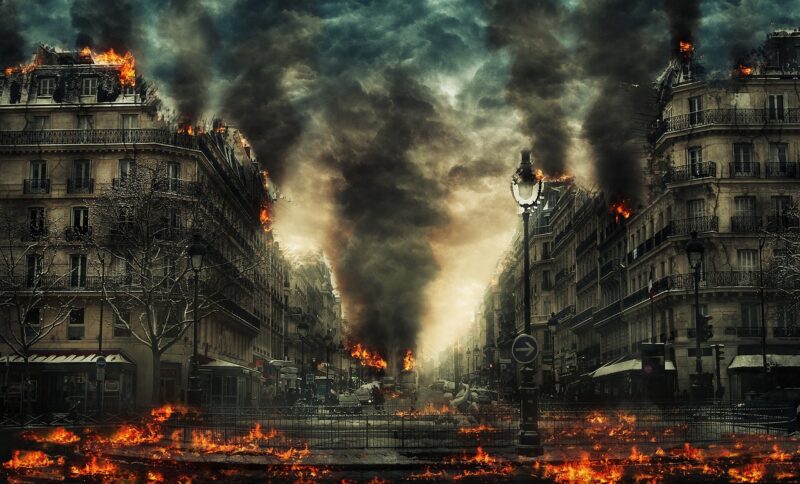Why Zombies Represent Society’s Fears and Anxieties
November 13, 2024

In the realm of horror fiction, few figures have captivated and terrified audiences as effectively as zombies. Originating from Haitian folklore and evolving through centuries of cinematic portrayal, zombies have become a staple of modern entertainment, frequently appearing in films, television series, and literature. However, beneath the gore and visceral fear lies a deeper narrative – zombies encapsulate the collective fears and anxieties of society. Understanding why these shambling corpses fascinate us requires an exploration of the psychological, social, and cultural implications of the zombie phenomenon.
1. The Origins of the Zombie Myth
The zombie folklore traces its roots back to Haitian Vodou, where it symbolizes resurrection without agency. The concept of a ‘zombi’ was historically associated with death and the fear of losing control over one’s own life. This cultural foundation lays the groundwork for the modern interpretation of zombies, who are often seen as mindless flesh-eaters devoid of personality or choice. The question arises: what anxieties do these creatures evoke in contemporary society?
2. The Anthropological Perspective: Fears of Dehumanization
Zombies often represent a perceptible fear of the loss of identity and autonomy. In an increasingly globalized and technologically driven world, individuals may feel isolated or commodified, leading to a collective dread of becoming a “unthinking mass”. Popular culture often uses zombies as a metaphor for this anxiety.
Consider films like “Night of the Living Dead” and “World War Z,” where characters react to hordes of zombies not just out of fear for physical safety, but also concern over being consumed by a dehumanizing force. This staggering idea raises critical discussions about the implications of rampant consumerism, technology overreach, and societal conformity.
3. Zombies and Contagion: The Fear of Infection
Zombies serve as a potent metaphor for the societal anxieties surrounding contagion and disease. With the rise of global pandemics (e.g., the H1N1 virus, Ebola, and most recently, COVID-19), fear of infection has permeated public consciousness. Zombie narratives often highlight themes of infection, loss of control, and the breakdown of societal norms under the pressure of a spreading illness.
In films like “28 Days Later” and “Train to Busan,” we see how fear plays out in real-time as characters struggle against both the fearsome undead and the societal collapse that follows a contagion. Zombies in this context are not just monsters to be fought; they embody anxieties regarding biosecurity and the fragility of civilization in the face of viral threats.
4. Societal Collapse and Survivalism
Zombies also serve as a narrative device to explore themes of societal collapse and survivalism. The allure of the post-apocalyptic landscape, illustrated in works like “The Walking Dead,” offers a platform to examine how societies disintegrate and individuals cope in extreme circumstances. This genre allows viewers to confront their fears about societal breakdown and the ensuing chaos.
Questions like: “In a crisis, how do we redefine morality?” or “What does it mean to be human when civilization crumbles?” are explored through characters’ choices and moral dilemmas. As audiences engage with these narratives, they reflect on their own lives, questioning how they might navigate crises and what it means to survive.
5. Cultural Reflections: Economic Anxiety and Political Discontent
In recent years, zombies have evolved to encompass broader societal fears including economic instability, class division, and political discontent. Shows like “iZombie” illustrate how zombies can represent societal outcasts and the alienation felt by certain demographics amidst economic inequality. Such narratives invite audiences to reflect on their social structures and challenge the status quo.
Furthermore, political unrest frequently finds its way into zombie narratives, serving as a critique of governmental response (or lack thereof) to crises. The portrayal of incompetent authority figures during a zombie apocalypse resonates with viewers’ frustrations with current political institutions. Subsequently, zombies act as an object of rebellion against those in power, symbolizing the public’s desire for change in the face of despair.
6. Globalization and Cultural Hegemony
The spread of zombies beyond Western media also reflects the fears of cultural hegemony and globalization. As countries adopt and reinterpret zombie narratives, they reveal their local anxieties – for instance, the Asian genre of zombie films often explores themes of overpopulation and the societal burden thereof. Each interpretation resonates with unique cultural aspects, signifying ongoing tensions within societies grappling with the implications of globalization.
The growing popularity of zombie genres worldwide can be seen as both an embrace of a global culture and a criticism of cultural imperialism, where local folklore is reconfigured to align with global narratives about fear and survival.
7. Conclusion: The Power of Zombie Narratives
Ultimately, the enduring appeal of zombies lies in their ability to reflect societal fears and anxieties. By representing the loss of individuality, fears of disease, concerns over societal collapse, and cultural tensions, zombies transcend the realm of entertainment; they provoke crucial reflections on the human condition. As society continues to evolve, so will the narratives surrounding the undead, ensuring that these harbingers of fear remain at the forefront of our cultural discourse.
Whether through gripping film narratives, entertaining television series, or gripping literature, zombies will continue to haunt our imaginations, reminding us of our deepest fears and anxieties in a world that often feels chaotic and unpredictable.







